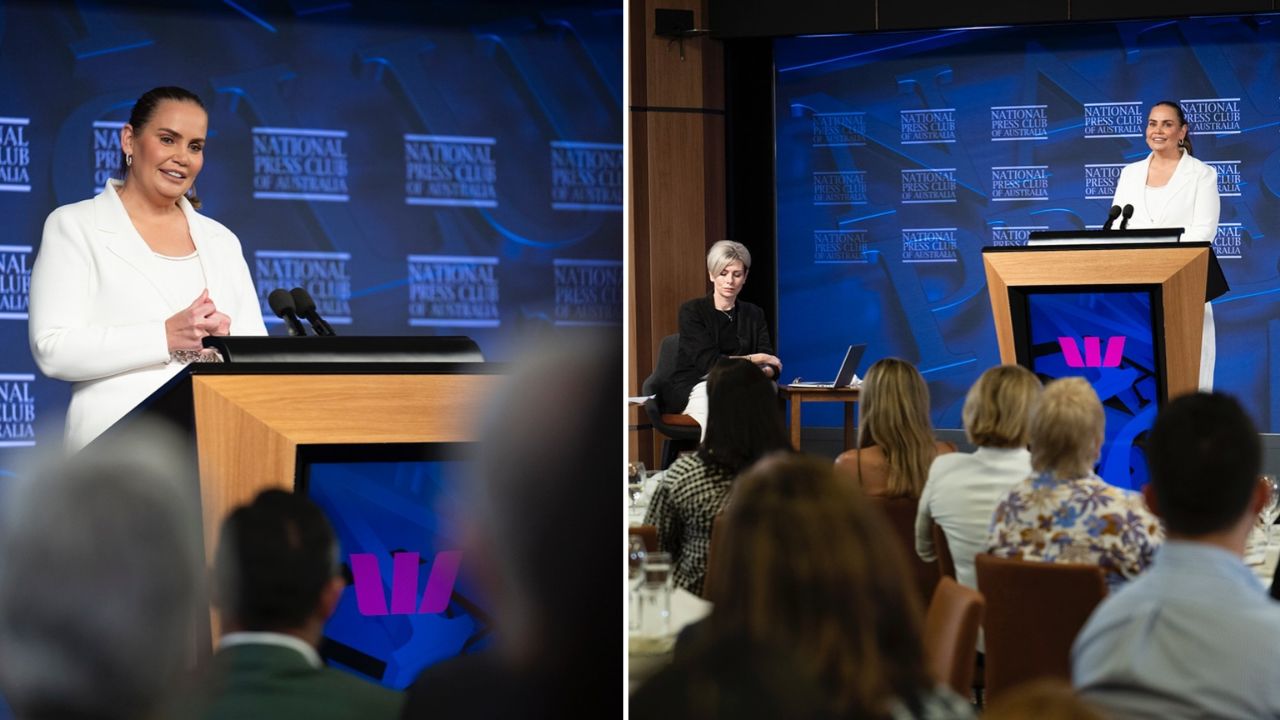"Speaking up saved my life": Jelena Dokic's inspiring speech

Jelena Dokic delivered a heartfelt address at the National Press Club on Wednesday, the first tennis player to speak there since John Newcombe 40 years ago.
The 41-year-old tennis great reflected on her journey from enduring the abuse at the hands of her father to inspiring others with her resilience.
Dokic spoke from her heart, without using a teleprompter she recalled the story of her life, saying: “He took from me the time with my country, with my people, with my home."
“Even when I came back a few years later, it was not the same. I was embraced but it was not the same up until my books and now the documentary where people can really see the power of it on screen.
“But I don’t hate him. There is no hate, bitterness or resentment towards the media, even the trolls. I am not a hateful, bitter, resentful person. I went through what I went through, but I survived and I’m thriving today for a reason.”
Dokic also revealed that after her tennis career ended, she hit rock bottom, battling severe depression and a lack of confidence.
"Eleven years ago, I was in bed, unable to get up, deep in depression. I couldn’t string two sentences together. I couldn’t look people in the eye," she said.
But with the help of a few people who believed in her, she managed to rebuild her life, writing her first book, Unbreakable, which gave her a platform to share her story.
Over time, she built her confidence and transitioned to commentary, speaking engagements and now public advocacy.
"Today, I can’t shut up," she joked. "At Channel 9, they say I can talk under water, and I’m proud of that because I couldn’t even form a sentence 11 years ago. Belief from others helped me get here, and now I want to be that person for someone else."
Dokic, who is now a tennis commentator, said she strives to remain positive saying: "You will never hear me say a bad word about a player who loses 6-0, 6-0. I’ll always find something constructive to say."
“I’ll say, ‘Not their day, it didn’t work out, got to look forward’. Always something like that, never criticise," she added.
Her authentic and kind approach has helped her master her craft and connect with her interviewees on a deeper level.
Dokic then went on to explain that she contemplated holding back from sharing parts of her trauma, but decided against it, saying: “I want that you see a person who has gone from victim to survivor, most importantly thriver."
"Maybe another 13-year-old girl will think, ‘She did it. I can do it too.’"
“I stood in the face of fear from my father to society to media. To come out and tell my story. I want to leave a legacy behind that I turned something bad into good, negative into positive, pain into power. And not even just for myself. But the ability to maybe help someone else."
She urged the audience to create safe spaces and reject shame, stigma, and judgment, adding, "Speaking out saved my life. No silence, no shame, no judgment."
Dokic concluded with a powerful plea for Australians to combat domestic violence and foster support for vulnerable individuals.
“Most importantly the day that we stop talking about the most important issues in our society and we turn our backs to them, that’s when our world and our society ends.
“So, if I could leave you with one thing — sharing my story, telling the truth, not being silent, and speaking up saved my life. No shame, no judgement, no stigma, but also no silence.”
Dokic received a standing ovation at the end of her hour-long speech.
Images: Jelena Dokic/ Instagram
